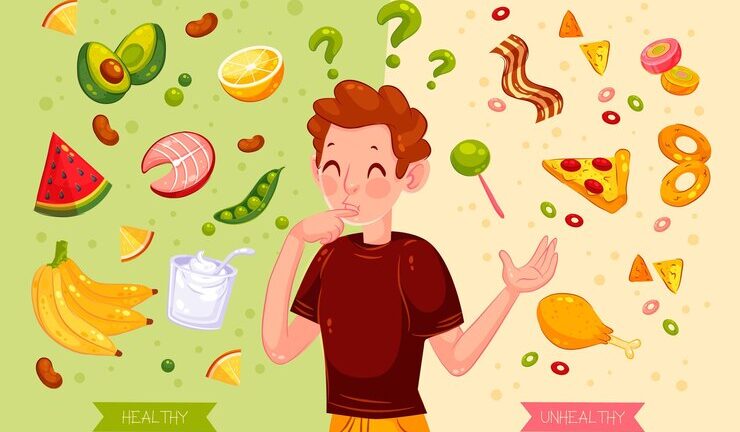Healthy eating is a topic surrounded by a plethora of myths and misconceptions, often leading people astray from balanced and nutritious diets. Misleading information can result in poor food choices, unnecessary restrictions, and overall confusion about what constitutes a healthy diet. In this article, we’ll debunk six common myths and misconceptions about healthy eating to help you make more informed decisions.
1. Myth: Carbs Are the Enemy
One of the most pervasive myths is that carbohydrates are inherently horrific and should be prevented. While it’s true that refined carbs like white bread and sugary snacks offer little nutritional value and can contribute to weight gain, not all carbs are detrimental. Carbohydrates are a vital source of energy, especially for brain function and physical activity. Complex carbohydrates found in whole grains, fruits, vegetables, and legumes are packed with essential nutrients and fiber, which aid in digestion and help maintain steady blood sugar levels. The key is to choose whole, unprocessed carbs over refined ones.
2. Myth: Eating Fat Makes You Fat
The misconception that eating fat directly leads to weight gain has been widely debunked. Healthy fats are essential for the body, supporting cell function, protecting organs, and aiding in the absorption of fat-soluble vitamins like A, D, E, and K. The focus should be on consuming unsaturated fats, such as those found in avocados, nuts, seeds, and olive oil, while limiting trans fats and saturated fats from processed foods and excessive red meat consumption. Incorporating healthy fats into your diet can actually help you feel fuller longer and prevent overeating.
3. Myth: All Calories Are Created Equal
The idea that all calories are equal ignores the nutritional value of the foods providing those calories. While it’s true that weight management involves balancing calorie intake and expenditure, the source of those calories is equally important. For instance, 200 calories from a serving of nuts provide healthy fats, protein, and fiber, whereas 200 calories from a sugary soda provide no nutritional benefits and can lead to spikes in blood sugar. Focusing on nutrient-dense foods ensures you get essential vitamins and minerals, supporting overall health and well-being.
For More Info: Mealplanet
4. Myth: Gluten-Free Means Healthy
With the rise of gluten-free diets, many people assume that gluten-free products are healthier options. However, gluten-free does not automatically mean a product is low in calories, sugar, or fat. Many gluten-free foods are processed and may contain added sugars and unhealthy fats to enhance flavor. For those without celiac disease or gluten sensitivity, there is no health benefit to eliminating gluten from the diet. Instead, prioritize whole foods like fruits, vegetables, lean proteins, and whole grains that naturally provide a balanced nutritional profile.
5. Myth: You Need Supplements for Proper Nutrition
While dietary supplements can be beneficial in certain situations, such as for individuals with specific nutrient deficiencies or medical conditions, they are not necessary for everyone. A well-balanced diet rich in a variety of foods typically provides all the nutrients needed for good health. Over-reliance on supplements can lead to nutrient imbalances and may even cause harm if taken in excessive amounts. Focus on getting your nutrients from whole foods, which offer a complex matrix of vitamins, minerals, fiber, and antioxidants that work synergistically to promote health.
6. Myth: Detox Diets and Cleanses Are imperative
Detox diets and cleanses have gained popularity as a quick fix for weight loss and health improvement. However, the body is naturally equipped with its own detoxification system, primarily the liver, kidneys, and digestive tract, which efficiently eliminate toxins. Most detox diets are based on restricting food intake and can lead to nutrient deficiencies, dehydration, and muscle loss. Instead of opting for drastic cleanses, support your body’s natural detox processes by maintaining a balanced diet rich in fruits, vegetables, lean proteins, and whole grains, while staying hydrated and avoiding excessive alcohol and processed foods.
Conclusion
Misconceptions about healthy eating can lead to poor dietary choices and unnecessary restrictions. By debunking these myths, we can foster a better understanding of nutrition and promote a more balanced approach to eating. Remember, the key to a healthy diet is variety, moderation, and focusing on whole, nutrient-dense foods. By making informed choices, you can support your overall health and well-being without falling prey to common dietary myths.

